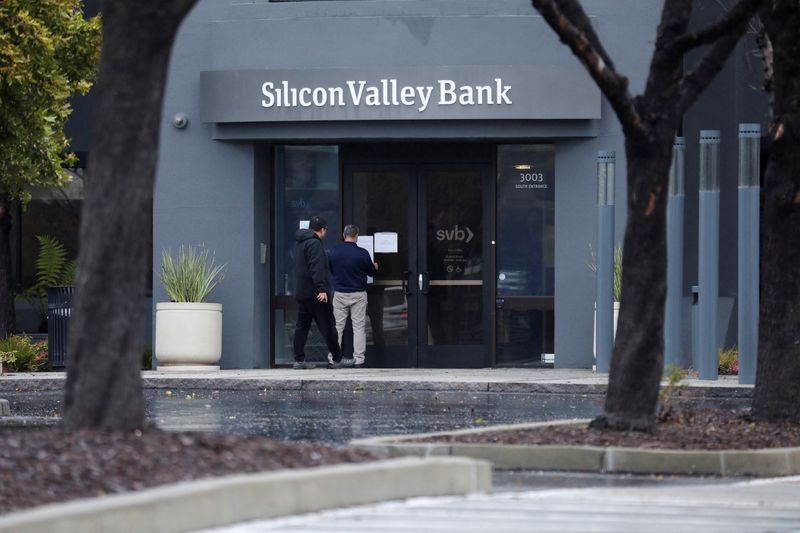NEW YORK (Reuters) - SVB Financial Group Inc's shutdown and takeover by banking regulators on Friday can be traced to the U.S. Federal Reserve raising interest rates and souring the risk appetite of investors.
Here is the sequence of events that led to Silicon Valley Bank's failure:
FEDERAL RESERVE RAISES RATES
The Federal Reserve has been raising interest rates from their record-low levels since last year in its bid to fight inflation. Investors have less appetite for risk when the money available to them becomes expensive due to the higher rates. This weighed on technology startups - the primary clients of Silicon Valley Bank - because it made their investors more risk-averse.
SOME SILICON VALLEY BANK CLIENTS FACE CASH CRUNCH
As higher interest rates caused the market for initial public offerings to shut down for many startups and made private fundraising more costly, some Silicon Valley Bank clients started pulling money out to meet their liquidity needs. This culminated in Silicon Valley Bank looking for ways this week to meet its customers' withdrawals.
SILICON VALLEY BANK SELLS BOND PORTFOLIO AT A LOSS
To fund the redemptions, Silicon Valley Bank sold on Wednesday a $21 billion bond portfolio consisting mostly of U.S. Treasuries. The portfolio was yielding it an average 1.79%, far below the current 10-year Treasury yield of around 3.9%. This forced SVB to recognize a $1.8 billion loss, which it needed to fill through a capital raise.
SVB ANNOUNCES STOCK SALE
SVB announced on Thursday it would sell $2.25 billion in common equity and preferred convertible stock to fill its funding hole. Its shares ended trading on the day down 60%, as investors fretted that the deposit withdrawals may push it to raise even more capital.
STOCK SALE COLLAPSES
Some SVB clients pulled their money from the bank on the advice of venture capital firms such as Peter Thiel's Future Fund, Reuters reported. This spooked investors such as General Atlantic that SVB had lined up for the stock sale, and the capital raising effort collapsed late on Thursday.

SVB GOES INTO RECEIVERSHIP
SVB scrambled on Friday to find alternative funding, including through a sale of the company. Later in the day, however, the Federal Deposit Insurance Corporation (FDIC) then announced that SVB was shut down and placed under its receivership. The FDIC added that it would seek to sell SVB's assets and that future dividend payments may be made to uninsured depositors.